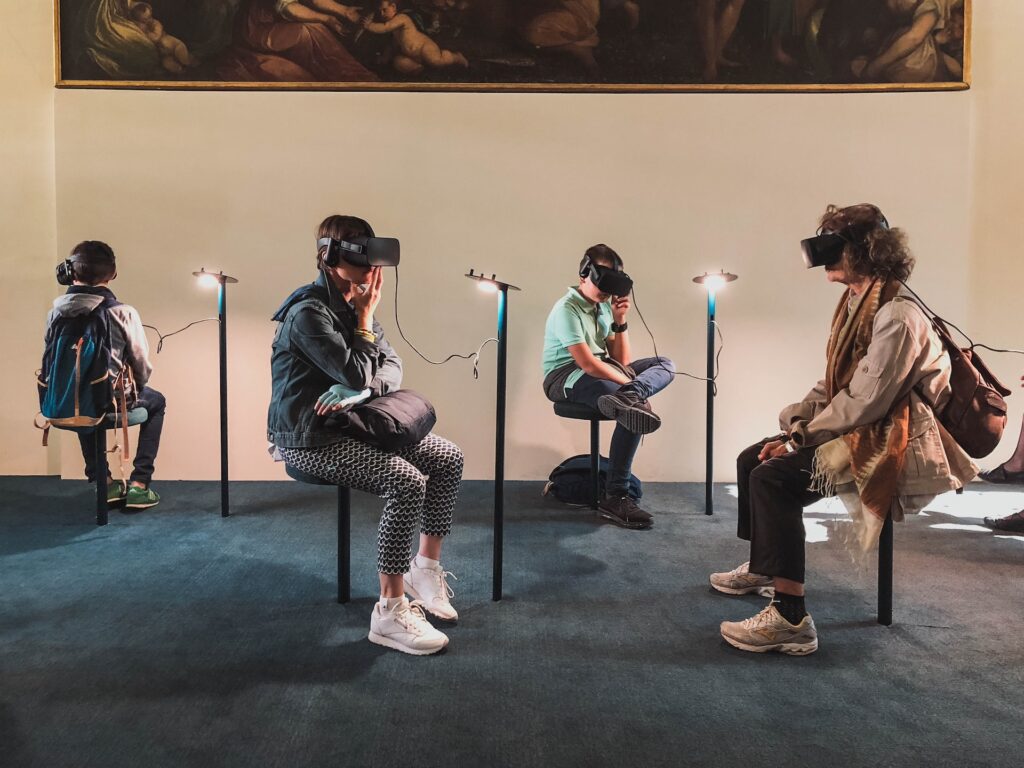E-Commerce Metaverses: the Amazing Future of Shopping
In the ever-evolving digital landscape, the concept of metaverses has taken center stage. These virtual environments blur the line between the physical and digital worlds, offering endless possibilities and opportunities. One area where metaverses have truly made their mark is in the realm of e-commerce. Today, we delve into the world of top e-commerce metaverses, exploring how they are revolutionizing the way we shop and interact with brands.
1. Decentraland
Decentraland is a decentralized virtual reality platform built on the Ethereum blockchain. It allows users to create, buy, and sell virtual land and assets. In this metaverse, you can explore various virtual districts, attend events, and even set up your own virtual store to showcase products and reach a global audience. With its own cryptocurrency, Mana, Decentraland offers a unique shopping experience where users can purchase virtual goods using digital currency.
2. The Sandbox
The Sandbox is a user-generated content platform that allows users to create and monetize their own virtual worlds. E-commerce brands can create branded experiences within these virtual environments, allowing customers to interact with products and discover new offerings. The Sandbox also offers a marketplace where users can buy and sell virtual assets, providing an additional revenue stream for businesses. With its vibrant community and endless possibilities, The Sandbox is an exciting metaverse for e-commerce entrepreneurs.
3. Cryptovoxels
Cryptovoxels is a metaverse built on the Ethereum blockchain that combines the features of virtual reality and blockchain technology. This unique combination creates a secure and decentralized environment for e-commerce activities. In Cryptovoxels, users can explore virtual neighborhoods, visit virtual galleries, and shop for digital art and collectibles. The platform also allows users to create their own virtual stores and sell their digital goods, making this metaverse is a haven for creative entrepreneurs.

4. Somnium Space
Somnium Space is an open-world metaverse that blends virtual reality, blockchain, and social interaction. Users can explore, create, and trade in this immersive virtual universe. With its own cryptocurrency, Cubes, Somnium Space provides a robust economy where users can buy and sell virtual goods, including real estate. From virtual events to art galleries, this metaverse provides endless opportunities for e-commerce brands to engage with their audience. Businesses can set up virtual storefronts, allowing customers to browse and purchase products in a fully immersive environment.
5. High Fidelity
High Fidelity is a virtual reality platform that aims to create a fully decentralized metaverse. Users can create, explore, and interact with virtual worlds, making it an ideal platform for e-commerce businesses to showcase their products. High Fidelity offers a range of features such as virtual currency, virtual land ownership, and the ability to host virtual events. With its emphasis on user-generated content and a vibrant community, High Fidelity provides a unique opportunity for brands to stand out in the evolving e-commerce landscape.
6. Upland
Upland is a metaverse that allows users to buy, sell, and trade virtual properties that are tied to real-world addresses. By leveraging blockchain technology, Upland enables users to own and monetize digital assets in a virtual representation of the real world. From buying virtual properties on famous streets to starting your own virtual business, Upland offers a novel approach to e-commerce within a metaverse.

7. Second Life
Although it has been around for over a decade, Second Life still remains one of the most popular virtual worlds. While not exclusively an e-commerce metaverse, Second Life offers a thriving virtual economy where users can buy and sell virtual goods, including clothing, accessories, and even virtual real estate. With its vast user base and diverse marketplace, Second Life continues to be a go-to platform for e-commerce enthusiasts.
8. VRChat
While VRChat is primarily known as a social platform, it has also become a hub for e-commerce activities. Users can create their own avatars, explore virtual worlds, and interact with others in real-time. This opens up opportunities for brands to create virtual showrooms, host virtual events, and even sell virtual merchandise. VRChat provides a unique blend of social interaction and e-commerce, allowing brands to connect with their audience in a more immersive and engaging way.
The Bottom Line
From virtual marketplaces to immersive shopping experiences, these metaverses offer endless opportunities for brands to connect with customers in innovative ways. By embracing these virtual worlds, e-commerce businesses can stay ahead of the curve and create memorable experiences for their audience. So, don’t miss out on this exciting trend and start exploring the top e-commerce metaverses today!




